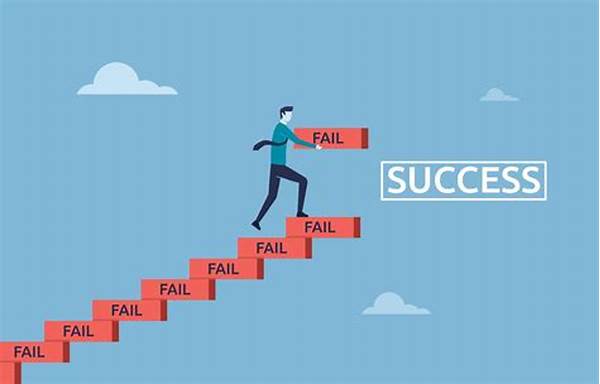The Psychology of Resilience in Modern Work
Read More : Tambakbet Shares Why Self-awareness Is The Root Of Growth
In today’s fast-paced world where change is the only constant, resilience has become more than just a personal trait; it is a critical professional skill. The dynamics of the modern workplace, with its endless emails, constant meetings, and the blurring lines between personal and professional life, demand more than just technical expertise or knowledge from the workforce. They require a robust psychological armor to endure stress, adapt to change, and continue to thrive.
Surveys reveal that more than half of workers experience stress on a regular basis, with many feeling overwhelmed by the pressures of their roles. This mental turbulence isn’t just a threat to individual well-being but also affects productivity and business outcomes, making resilience an invaluable asset for both employees and employers alike.
The psychology of resilience in modern work encapsulates understanding and harnessing the mental faculties that enable individuals to recover from setbacks, adapt to challenging circumstances, and keep pushing forward. It’s no longer about working harder but about working smarter and more resiliently. As organizations pivot toward fostering well-being and mental health, resilience is the bridge that connects personal growth with professional achievement.
Resilience in the workplace is not an overnight transformation but a skill crafted with time, experiences, and conscious effort. Just like muscle strengthening through consistent exercise, building resilience involves regular practice and the inclusion of certain foundational elements into one’s life.
Cultivating Resilience: Strategies that Work
The road to resilience is paved with certain philosophies and actions that can redefine your approach to work and life. Embracing change, maintaining a positive attitude, and finding meaning in what you do are pivotal elements. Mixing humor and relatability with sincere intent, the psychology of resilience in modern work propagates that setbacks are learning opportunities disguised in adversity, and challenges are the building blocks of a resilient mindset.
Understanding the Importance of Resilience in Today’s Workplace
In a world racing towards digital transformation and major organizational shifts, resilience is essential. With companies striving for excellence in a competitive marketplace, resilience reflects an organization’s capability to sustain operations, maintain satisfied employees, and innovate continually. In a recent market analysis, companies that invested in the psychological resilience of their workforce observed a significant rise in productivity and employee satisfaction.
From tech giants to start-ups, the implementation of training programs focused on enhancing resilience is gaining momentum. The psychology of resilience in modern work revolutionizes how organizations perceive and enhance their culture to nurture an environment conducive to both professional development and personal well-being.
Deep Dive into Resilience
Resilience and Workplace Dynamics
While the rush of hitting targets and KPIs remains ever-pressing, organizations are steadily shifting their focus toward cultivating a workplace ecosystem that promotes balance. The psychology of resilience in modern work suggests that flexibility, an adaptive mindset, and open communication are key. Those companies leading in innovation often share a common trait: a workforce that thrives in the face of adversity.
Resilience isn’t merely coping; it’s about growth. Through conversations with industry leaders and employees, it’s evident that resilient individuals don’t just survive; they innovate. Fundamentally, resilience is about thriving in uncertainty, maintaining agility in crises, and not just bouncing back, but bouncing forward.
Resilience-Building Techniques
Developing resilience isn’t a solo journey; it involves collective efforts and support. Initiatives such as mentorship programs, resilience workshops, and mental health days are gaining traction. The idea is to normalize discussions around mental health and resilience, debunking myths of stoicism that have long dominated corporate culture. Humor, storytelling, and leveraging technology are unique approaches making waves in promoting resilience.
A notable example is a tech firm that introduced “Failure Fridays,” where employees learn from mistakes, share stories, and celebrate lessons gleaned from adversities. This blend of humor, learning, and teamwork underscores the practicality of resilience, proving once more how the psychology of resilience in modern work can transform attitudes and results.
Nine Key Facts About The Psychology of Resilience in Modern Work
Resilience: The Backbone of Modern Professionalism
Amidst boardroom decisions and project deadlines, the mental toughness of employees often defines an organization’s performance. The simplicity yet profoundness of resilience boils down to how we handle, adapt, and grow from situations rather than the circumstances themselves.
Industries are witnessing a widespread embrace of resilience-building as a strategic business imperative. The psychology of resilience in modern work doesn’t solely benefit employees but also enriches organizational strategy and culture—a dual advantage bringing collective upliftment. The narrative spin is less about grappling with stress and more aligned towards engaging with opportunities.
At the heart of this transformation is a community of like-minded individuals continuously overcoming barriers to sculpt a workplace environment that champions resilience. The organizational focus on forging resilient practices and mindset heralds a new era where the story of resilience transcends survival, evolving into a saga of thriving and enduring success.



